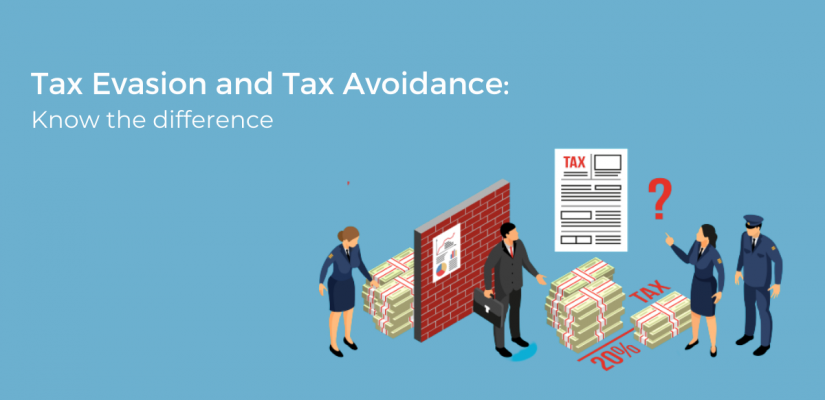
Difference between Tax Avoidance and Tax Evasion
Tax avoidance simply means that you structure your businesses in such a manner that you pay less tax than you would pay otherwise, and thus it is absolutely legal. However, configuring has to be done lawfully.
By using illegal means reducing your tax liability is Tax Evasion. Illegitimate means are making untruthful refundable credits, announcing untrue income or deductions. Any taxes you have avoided and you get held, you have to repay for these evaded taxes and will face heavy penalties in the percentage of evaded taxes. There might also be interest charges from the year of fudging till the date you have paid tax dues and penalties.
Under the voluntary disclosure program, you can get a break if you fix and let the tax authorities know about your deficiencies in the past taxes.
Difference between tax avoidance and tax evasion
Definition
Tax avoidance is defined as legal measures to use the tax regime to find ways to pay the lowest rate of tax, e.g. putting savings in the name of your partner to take advantage of their lower tax band.
Tax evasion is taking illegal steps to avoid paying tax, e.g. not declaring income to the taxman.
There is a large difference, in lawful terms, between tax avoidance and tax evasion. The consequence of plummeting the tax bill may be alike, in practice, but tax fudging could lead to legal consequences under the country’s law.
Few forms of tax avoidance can lead public figures to suffer defame – even if they didn’t break the law and are considered to be ethically dubious.
Examples of tax avoidance could be
Situating up house in a nation with low-income tax rates. This may comprise giving up their citizenship of the original country in some nations.
If your spouse can pay a lower rate of income tax you may think of stroking assets in your spouse’s name.
Rather than income, setting up a business and pay bonuses to avoid paying national insurance.
To avoid paying inheritance tax, giving possessions to your broods before you die.
Setting up a business in a union territory which is a minor principality, to take advantage of lower corporation tax rates. Between tax avoidance and tax evasion, there is a very thin line.
Tax evasion could be
• Over claiming expenditures.
• Declaring insolvency and restarting business under a different name.
• Walloping income from the tax department
Because his earnings from gambling and alcohol were not submitted to the tax department it was considered as tax avoidance and the disparity. And this was the reason why Vijay Malia was tried for tax evasion
Habitually it is high-income earners who most likely take part in tax evasion or tax avoidance schemes. As they have a bigger income to make it worthy and also the revenue to pay tax advisers.
Tax gap
Governments gather less tax income than anticipated leading to a deficit in tax revenue is the major significance of tax evasion and tax avoidance. For developing nations, this is often a problem as they have poor tax substructure.
Things to do if you want to avoid penalties
File a corrected amendment return, which lets you make changes to tax returns you’ve filed in the past. Hire a good tax consultant to manage and declare your assets and incomes lawfully. Be truthful to your tax adviser. Try to maintain ledgers and accounting as clean as possible.
Conclusion:
Tax avoidance if done through proper guidance of tax advisers like Legalway LLP can help you save upon your taxes and still come clean through tax scrutinizes. But tax evasion is near to a crime and can lead to serious consequences, even legal action against you or your firm. Therefore, tax avoidance through proper guidance is the right way.